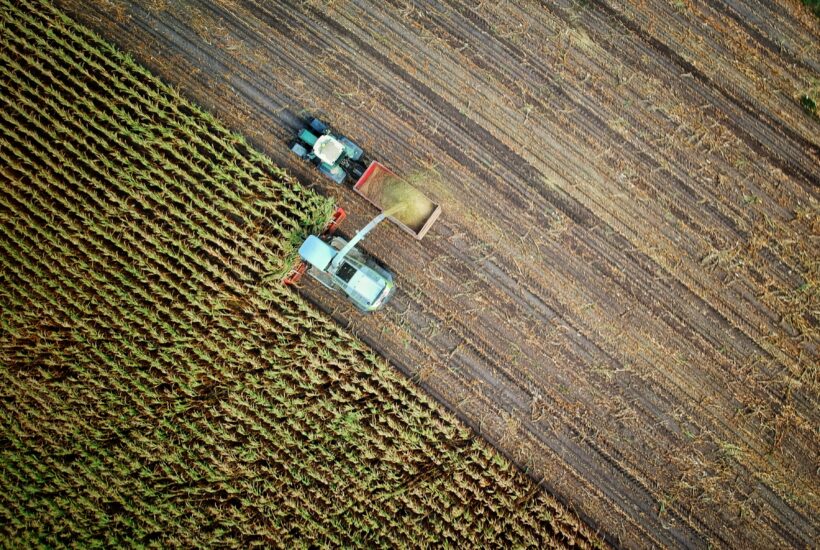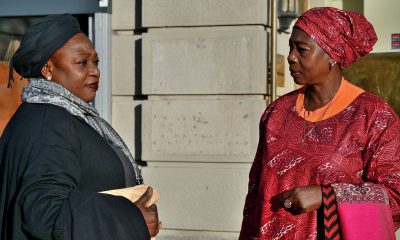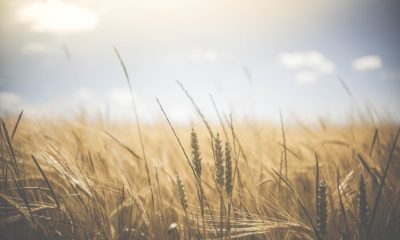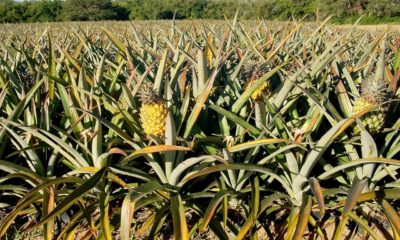Africa
MODHEM+ : The Progress Report in Burkina Is Considered Satisfactory
The MODHEM+ project has allowed to set up infrastructures that are now used by the communities. It has also made it possible to work on aspects related to access to inputs and capacity building. However, there are still challenges to be met and they concern the strengthening of the institutional, regulatory and political environment and the improvement of pastoral value chains

In Burkina Faso, the agro-pastoral sector contributes more than 35% of the gross domestic product and employs more than 85% of the active population. Unfortunately, this sector is hard hit by the impacts of climate change, the growing pressure on natural resources, and the weak organization of stakeholders. These obstacles require the development of resilience strategies to enable agriculture and livestock to perform better.
Read more on the subject and find the latest economic news from around the world with the Born2Invest mobile app.
According to the coordinator of the MODHEM+ project, the project will affect 20 communes in the southern band
The project to improve livestock mobility and the income of agro-pastoralists through the use of mobile telephony and satellite imagery in Burkina Faso (MODHEM) was initiated and implemented in 2015 by the Netherlands Development Organization (SNV) and its partners, including the ministry in charge of animal and fisheries resources. From 2015 to 2019, the project has developed and implemented a service called GARBAL for rural actors. This service is accessible from cell phones through a call (777) to a call center managed by ORANGE Burkina.
After a successful first phase, innovations have been introduced since 2020 to improve the information service through the second phase of the project called MODHEM+. Financed by the Embassy of the Netherlands in Burkina Faso and the Swiss Cooperation Office, the complementary actions to MODHEM+, called MODHEM+/DDC, are implemented within the framework of a four-year project (from January 1, 2021 to December 31, 2024) and should, in the long run, contribute to improving the productivity, income, resilience and food security of pastoral and agropastoral populations in a context of climate change and security crises.
MODHEM+/SDC is contributing through the construction of infrastructure and the development of pastoral areas, support to pastoral value chain actors, particularly women and youth, the creation of an institutional, regulatory and political framework favorable to pastoralism, and capacity building for stakeholders. For effective and efficient management of the two components “pastoral infrastructure” and “information services”, a joint technical monitoring committee has been established.
To assess the status of the implementation of activities by the two components of the MODHEM+ project in order to have a sustainable information system that meets the needs of agropastoralists, with a systemic approach; it is in this perspective that this first session of the technical committee was held on July 1st, 2022, in Koudougou. On the added value of these two components, the Secretary-General of the Ministry in charge of animal and fishery resources explained that they aim to facilitate the mobility of pastoralists and agro-pastoralists through the provision of information on available transhumance corridors, the price of livestock and plant products on the market, but also all information related to the availability of biomass.
“It is a set of information that must be managed by a platform through which pastoralists and agro-pastoralists can have information to improve their mobility and also to orient themselves with respect to the different prices on the market. On the other hand, there is also the realization of agropastoral infrastructure that will facilitate this mobility. I’m talking about everything from boreholes, livestock markets, transhumance trails, vaccination parks, veterinary posts, vaccination parks, boreholes (…) which will be developed to facilitate these movements of pastoralists,” continued Victor Bonogo. After watching a series of videos, he said he was satisfied with the actions carried out under this project.
The Swiss Cooperation and the Dutch Embassy believe that it is important to work in the pastoral sector in Burkina Faso because of its economic importance
“There is also the issue of conflicts between farmers and pastoralists. Through a program like this one, it is important to address actions to resolve these conflicts or improve the situation. In terms of pastoralism, when we talk about transhumance, it concerns several countries. It is important to address this issue on a national and regional level. Switzerland, through its contribution at the regional level, in particular with its support to ECOWAS, can address these issues at both the national and regional levels. This is why Switzerland has decided to finance this program,” said the Deputy Head of the Swiss Cooperation Office, Jean-Michel Limat. The contribution of Switzerland is estimated at about $5.16 million (€5 million) or more than 3 billion CFA francs with a contribution of $4.13 million (€4 million) from the Netherlands.
For his part, Kassoum Ouédraogo indicated that the MODHEM+/DDC project is implemented through four components, the first of which is active in setting up sustainable pastoral infrastructures that will facilitate mobility and improve the tax revenue of the various implementing partner communes. “The idea is to work to ensure that pastoral and agropastoral communities can have greater resilience to meet the various needs in a difficult context of food insecurity and crises,” said the project coordinator. This component covers four regions in the southern part of Burkina Faso, including the Centre-South, Centre-West, South-West and Cascades. A total of 20 communes will be affected across these four regions. Due to the security situation, the project has put in place an adaptive management system in order to carry out its activities in the communes of Mangodara, Djigoué, and Yo. Taking advantage of the opportunity, Mr. Ouédraogo reviewed the implementation of the first phase of the MODHEM+ project. This assessment highlights the implementation of a social engineering that is highly appreciated and that could serve as an example.
Indeed, the project has allowed to set up infrastructures that are now used by the communities. It has also made it possible to work on aspects related to access to inputs and capacity building. However, there are still challenges to be met and they concern the strengthening of the institutional, regulatory and political environment and the improvement of pastoral value chains. “Even today, compost is a value chain that needs to be strengthened. Without forgetting the capacity building of the implementation partners, notably the local authorities, the central and deconcentrated services and the civil society”, he concluded.
__
(Featured image by no one cares via Unsplash)
DISCLAIMER: This article was written by a third party contributor and does not reflect the opinion of Born2Invest, its management, staff or its associates. Please review our disclaimer for more information.
This article may include forward-looking statements. These forward-looking statements generally are identified by the words “believe,” “project,” “estimate,” “become,” “plan,” “will,” and similar expressions. These forward-looking statements involve known and unknown risks as well as uncertainties, including those discussed in the following cautionary statements and elsewhere in this article and on this site. Although the Company may believe that its expectations are based on reasonable assumptions, the actual results that the Company may achieve may differ materially from any forward-looking statements, which reflect the opinions of the management of the Company only as of the date hereof. Additionally, please make sure to read these important disclosures.
First published in lefaso.net, a third-party contributor translated and adapted the article from the original. In case of discrepancy, the original will prevail.
Although we made reasonable efforts to provide accurate translations, some parts may be incorrect. Born2Invest assumes no responsibility for errors, omissions or ambiguities in the translations provided on this website. Any person or entity relying on translated content does so at their own risk. Born2Invest is not responsible for losses caused by such reliance on the accuracy or reliability of translated information. If you wish to report an error or inaccuracy in the translation, we encourage you to contact us.

-

 Crypto1 week ago
Crypto1 week agoThe Crypto Market Rally Signals Possible Breakout Amid Political Support and Cautious Retail Sentiment
-

 Crypto4 days ago
Crypto4 days agoBitcoin Hits New Highs in USD, But Euro Investors See Limited Gains
-

 Crypto2 weeks ago
Crypto2 weeks agoXRP vs. Litecoin: The Race for the Next Crypto ETF Heats Up
-

 Crypto1 day ago
Crypto1 day agoCrypto Markets Surge on Inflation Optimism and Rate Cut Hopes



















